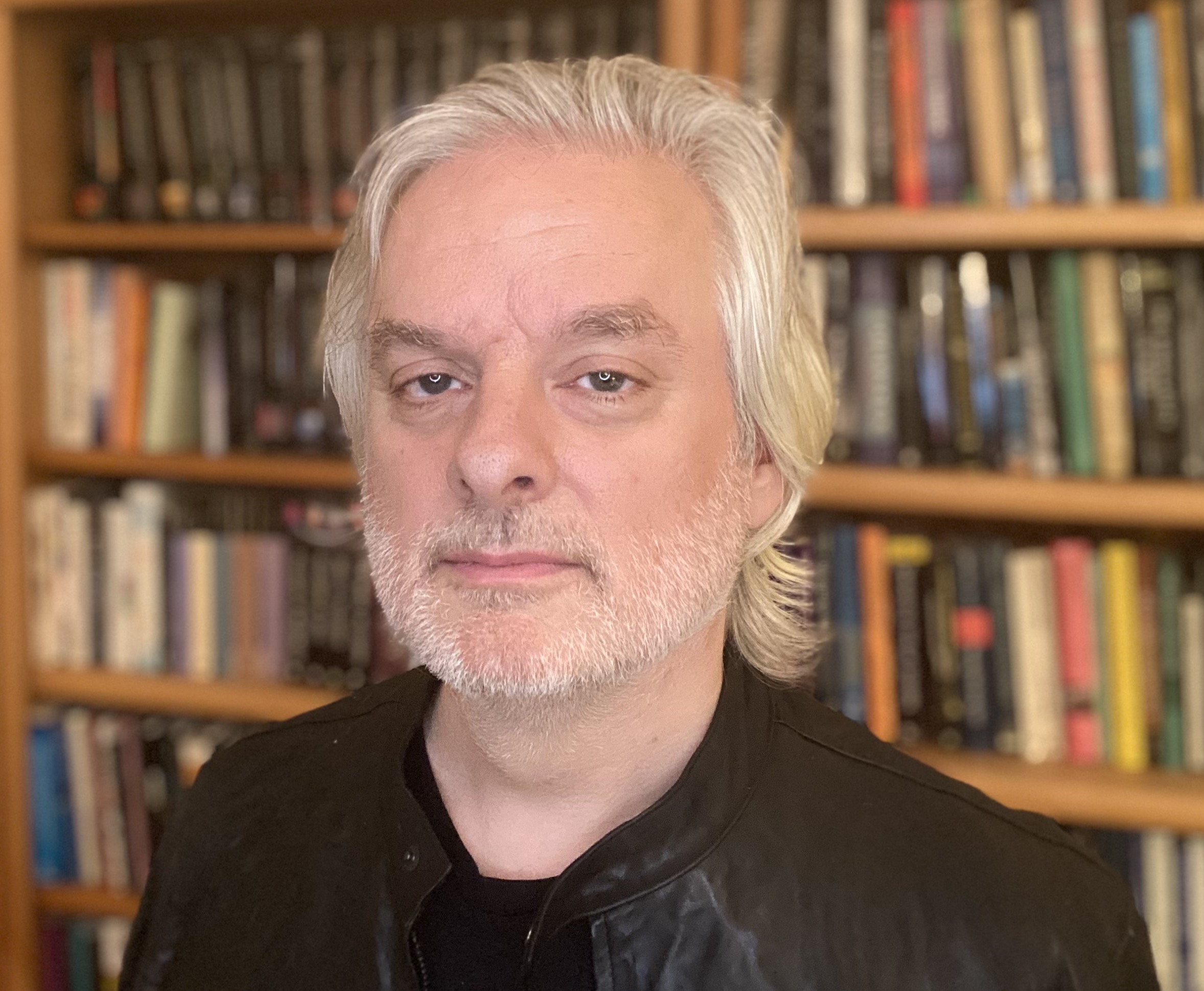
David Chalmers
David John Chalmers (/ˈtʃɑːlmərz/)[1] is an Australian philosopher and cognitive scientist specializing in the areas of the philosophy of mind, and the philosophy of language. He is a professor of philosophy and neural science at New York University, as well as co-director of NYU's Center for Mind, Brain and Consciousness (along with Ned Block).[2][3] In 2006, he was elected a Fellow of the Australian Academy of the Humanities.[4] In 2013, he was elected a Fellow of the American Academy of Arts & Sciences.[5]
For other people with the same name, see David Chalmers (disambiguation).
David Chalmers
University of Adelaide
(BSc, 1986)
University of Oxford (1987–1988)
Indiana University Bloomington (PhD, 1993)
Chalmers is best known for formulating the hard problem of consciousness, and for popularizing the philosophical zombie thought experiment.
Chalmers and David Bourget co-founded PhilPapers; a database of journal articles for philosophers.
Early life and education[edit]
David Chalmers was born in Sydney, New South Wales, and subsequently grew up in Adelaide, South Australia,[6] where he attended Unley High School.[7]
As a child, he experienced synesthesia.[6] He began coding and playing computer games at the age of 10 on a PDP-10 at a medical center.[8] He also performed exceptionally in mathematics, and secured a bronze medal in the International Mathematical Olympiad.[6] When Chalmers was 13, he read Douglas Hofstadter's 1979 book Gödel, Escher, Bach, which awakened an interest in philosophy.[9]
Chalmers received his undergraduate degree in pure mathematics from the University of Adelaide.[10] After graduating Chalmers spent six months reading philosophy books while hitchhiking across Europe,[11] before continuing his studies at the University of Oxford,[10] where he was a Rhodes Scholar but eventually withdrew from the course.[12]
In 1993, Chalmers received his PhD in philosophy and cognitive science from Indiana University Bloomington under Douglas Hofstadter,[13] writing a doctoral thesis entitled Toward a Theory of Consciousness.[12] He was a postdoctoral fellow in the Philosophy-Neuroscience-Psychology program directed by Andy Clark at Washington University in St. Louis from 1993 to 1995.
Career[edit]
In 1994, Chalmers presented a lecture at the inaugural Toward a Science of Consciousness conference.[13] According to the Chronicle of Higher Education, this "lecture established Chalmers as a thinker to be reckoned with and goosed a nascent field into greater prominence."[13] He went on to coorganize the conference (renamed "The Science of Consciousness") for some years with Stuart Hameroff, but stepped away when he felt it became too divergent from mainstream science.[13] Chalmers is a founding member of the Association for the Scientific Study of Consciousness and one of its past presidents.[14]
Having established his reputation, Chalmers received his first professorship at UC Santa Cruz, from August 1995 to December 1998. In 1996 he published the widely cited book The Conscious Mind. Chalmers was subsequently appointed Professor of Philosophy (1999–2004) and then Director of the Center for Consciousness Studies (2002–2004) at the University of Arizona, sponsor of the conference that had brought him to prominence. In 2004, Chalmers returned to Australia, encouraged by an ARC Federation Fellowship, becoming professor of philosophy and director of the Center for Consciousness at the Australian National University. Chalmers accepted a part-time professorship at the philosophy department of New York University in 2009, becoming a full-time professor in 2014.[15]
In 2013, Chalmers was elected a Fellow of the American Academy of Arts & Sciences.[5] He is an editor on topics in the philosophy of mind for the Stanford Encyclopedia of Philosophy.[16] In May 2018, it was announced that he would serve on the jury for the Berggruen Prize.[17]
In 2023, Chalmers won a bet—made in 1998, for a case of wine—with neuroscientist Christof Koch that the neural underpinnings for consciousness would not be resolved by the year 2023, while Koch had bet that they would.[18]
Media[edit]
Chalmers was featured in the 2012 documentary film entitled The Singularity by filmmaker Doug Wolens, which focuses on the theory proposed by techno-futurist Ray Kurzweil, of that "point in time when computer intelligence exceeds human intelligence."[32][33] He was a featured philosopher in the Daily Nous series on GPT-3, which he described as "one of the most interesting and important AI systems ever produced."[34]
Personal life[edit]
As of 2012 Chalmers was the lead singer of the Zombie Blues band, which performed at the music festival Qualia Fest in 2012 in New York.[35]
Regarding religion, Chalmers said in 2011: "I have no religious views myself and no spiritual views, except watered-down humanistic, spiritual views. And consciousness is just a fact of life. It's a natural fact of life".[36]